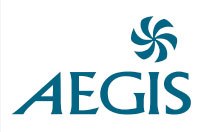“One particular aspect of additional support that Guardians have offered is the provision of holiday camps during school holidays”
The additional stresses to both existing and new students due to Covid cannot be overestimated. Many existing students have not been able to return home for over 18 months, whilst some new students have been bewildered on arriving in the UK without the benefits of a prior visit due to Covid restrictions.
“This is why we have now added a medical questionnaire at the start of UK Education Guide’s student screening process, to particularly highlight any existing mental health issues,” says director, Rafael Garcia-Krailing.
The reality is that even domestic students have struggled to continue their studies and US figures back up the impact of Covid on even older US college students.
One report has suggested that of the 2.6 million students who started college in fall 2019, 26.1%, or roughly 679,000, didn’t come back in 2020.
In the UK, Guardians offer the vital bridging role between parents and schools: As Malvern St James’s director of Pastoral Care & Designated Safeguarding Lead, Zinnia Wilkinson points out that “the pandemic has required increased school contact with guardians, especially with regards to pupil placement during the holidays, quarantine and mental health and in light of pupils spending up to 18-months away from their homes”.
“Certainly, our relationships with Guardians have been strengthened during the pandemic and we will build on these relationships still further in future,” she adds.
But what are the views of those running leading Guardianship companies?
Director of Cambridge Guardian Angels Julia Evans states, “Our experiences during the Covid pandemic, along with consultation on NMS2 (the new National Minimum Standards for Boarding Schools) have highlighted the vital role of the Educational Guardian”.
“Frankly, in the past the role was not fully understood. Everyone now better realises that schools, guardians and parents must work closely together to ensure the wellbeing of the students,” she explains.
On a practical level, Ben Hughes, Managing Director of Pippa’s Guardians has certainly noticed an increase in mental health concerns; anxiety, depression and self-harm amongst international students. However, what he has particularly noticed is a massive increase in the anxiety levels of parents.
“I would say their anxiety levels have increased tenfold since the start of the pandemic,” says Ben.
Increased communication between parents, schools, guardians and the students themselves has therefore been vital in reassuring parents that their children are ok.
“When able to access schools (Covid restrictions permitting) we have increased the number of visits to students in school to ensure our relationships with our students are as strong as possible. Parents have relied on us more than ever to have additional contact to provide added reassurance,” adds Ben.
One particular aspect of additional support that Guardians have offered is the provision of holiday camps during school holidays. In the past it was common for Guardians to offer summer camps, but as many pupils have been unable to go home for other holidays, Guardians have offered camps during the latest half term break and will be offering provision at Easter this year too.
“After periods of isolation from peers, friends and family, offering the chance to make new friends in a safe environment is really attractive to parents and students alike,” says Julia Evans.
“The sense of camaraderie and being ‘all in it together’ has given real support to families who feel comforted to know their child is being well looked after, but with lots of peer support and pastoral care too,” adds Ben Hughes.
So, while the past two years has been a logistical nightmare for all in the international education sector, the increased communication that has been necessary to ensure child safety, between schools, guardians, parents and students is a really positive outcome.
Never before has the value of a quality guardian been more appreciated and needed.

